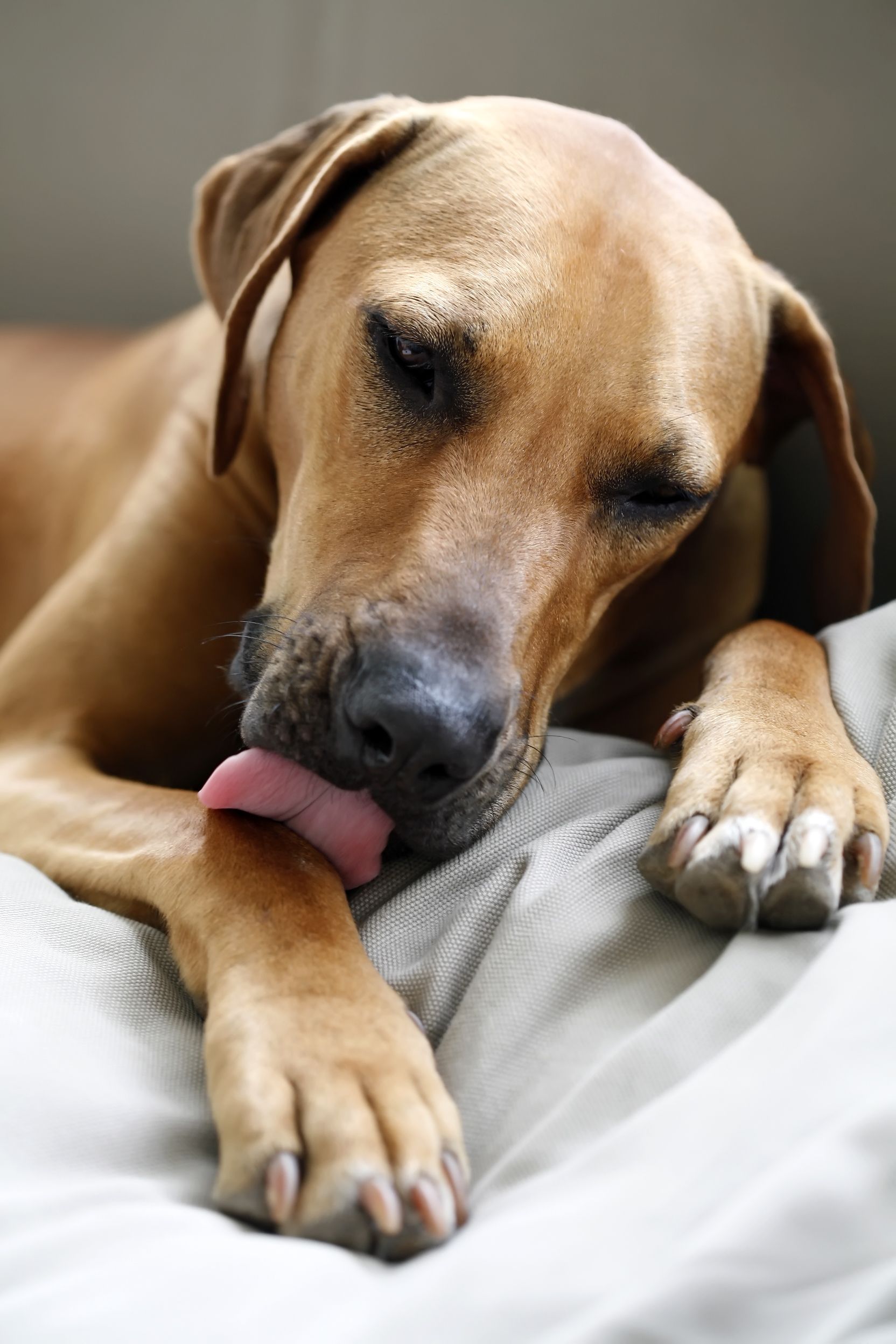
If this sounds like the state of your dogs feet it might be time to schedule an appointment with the vet. Sometimes dogs will lick their feet or joints because they are stiff and sore just as we might rub a sore patch.

Licking and biting of the toes and paws is a common behavior among dogs.
What does it mean when your dog constantly licks their paws. If your dog is experiencing a type of pain from their feet theyll lick. Often if theyre licking only one paw that means your dog might have some sort of injury on that foot. A thorn between its toes an incision from a sharp pebble or some other injury.
If your vet has ruled out itchy feet they might discuss that your dog is licking for other reasons. Sometimes dogs will lick their feet or joints because they are stiff and sore just as we might rub a sore patch. Boredom and stress can also cause your dog to lick and bite their front paws out of frustration which can then become habit.
Paw balm or petroleum jelly-based products keep your dogs paws safe and moisturized. If boots dont feel right for your best friend try Vaseline or a paw balm such as Mushers Secret. The balm or Vaseline also keeps their paw pads hydrated.
Just be sure to have a towel handy when you get back inside to wipe it off. Licking and biting of the toes and paws is a common behavior among dogs. While some degree of licking is considered normal dogs with red swollen paws or chronic saliva staining likely have an underlying medical problem.
If this sounds like the state of your dogs feet it might be time to schedule an appointment with the vet. Cheri Wulff Lucas a dog behavior specialist and rescuer suggests that the most common reason for dogs to lick their paws is because something is on or in them. Maybe its just water theyre licking off orI live in California so my dogs sometimes get foxtail stuck in their paws says Lucas.
In the dog world a moderate degree of licking is part of normal grooming behavior. For example a male or female dog may lick the genital area after urinating as a means of cleaning the area. When this is the case licking is only related to elimination and is not persistent.
Just a quick swipe of the area takes care of business. But sometimes licking is a symptom of a more serious problem. If your dog is licking themselves you or objects excessively to the point that it seems like a.
Licking can be one way to alleviate pain. If your dog is consistently licking the same spot theres a good chance something is bothering them in that area. Check for bumps lesions and foreign bodies and monitor how she moves to see if arthritis or an injury may be the issue.
Contact your vet if you think your pup might be in pain. Paw licking can be caused by something as simple as a foreign object stuck between the toes or a cut paw pad. If the licking is persistent and neither of these simple issues are to blame here are five common causes of paw irritation.
Salts and de-icing chemicals are not friendly to dogs paw pads. Dogs tend to clean their paws by licking or chewing them when dirty. Similar to felines some dogs also like to lick their paws to clean their faces.
This is considered healthy and normal. But when your dog licks or chews too much even if their paws dont look dirty then it is time to start looking for the underlying cause for their behavior. Excessive licking can lead to the formation of hot spots or red raw spots where the skin and fur is now missing.
Your dog may grunt uncomfortably if the area is painful or very bothersome or you may see your dog start to lick the area almost constantly even if it appears nothing is wrong. An easy sign to miss but dogs licking paws is regularly associated with allergies. If you notice your dog excessively licking their paws after going for a walk it may be an allergy to something in their environment grass pesticides or plants.
Conflicts with other animals or changes in household routine may also cause stress-relief licking. Some dogs lick their paws because they dont have anything better to do. Your veterinarian is correct that licking can also be a sign of an underlying health problem.